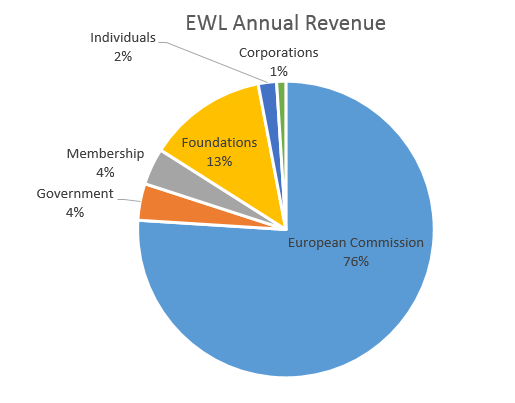[International Security Information Service – Europe, 05 September 2011] As the chase for former Libyan leader Colonel Gaddafi continues to rage and make the headlines worldwide, the time is approaching to analyze how and when Libya will rise from the conflict and how Libyans, with the help of the international community, will organize their future without their long-time leader.
However, just as in many conflict or post-conflict situations across the world, the missing components are often women. Since the start of the civil war, only few articles about the plight of Libyan women have made the headlines, except a highly publicized rape case with the victim being carried away and silenced by security guards[1]. Further allegations of rape have followed, some observers claiming that rape was used as a weapon of war – either by the rebels or by Gaddafi’s men. Such allegations must be taken seriously, must be brought to the headlines and this must happen quickly. While both sides are accusing each other of rape, it is crucial to investigate their actions and Libyan and international justice must ensure that neither Gaddafi’s men nor the rebels escape from rape accusations.
Yet, the inclusion of women in political reconstruction does not end with pursuing rape perpetrators. While pursuing war criminals accused of rape is essential in the reconstruction and reconciliation process, the inclusion and participation of women must go much further[2].
Women in the revolution should equal women in the reconstruction
As Libya emerges from months of internal conflict, parties will hopefully gather soon to form a lasting governmental solution. Such solution must include efforts to integrate women in the process and to ensure the promotion of women and family rights.
The Libyan revolution of 1969 actually signed a positive development for women as it brought down some of the most traditional views of women. Their empowerment was seen as central to the revolution and many urban women discarded the veil and traditional clothing in the 1970s. They joined the workforce, gained the right to vote and access to higher education. Women were allowed to shop, drive and visit town without being accompanied by a male relative. As such, Libyan women were better off than many women in other Arab and African countries.
Libyan women took part in various aspects of society, including government and political participation[3] and – although Libya remains a more traditional society than Egypt or Tunisia – women were still active in the revolution which overthrew Colonel Gaddafi this year. However, while the revolutions brought a variety of changes to its citizens both in Tunisia and Egypt, women, although they did participate in the revolution as actively as men in those countries, have failed to profit from such changes and have failed to be included in the reconstruction process.
As Catherine Bennett observes[4], the new post-revolution leaders are already showing a marked tendency to be male. She notes that in Tunisia, only two women serve in the transitional government. In Egypt a “committee of wise men” was formed and there are no women on the committee drafting constitutional change. In an interview to the Nation, Egyptian feminist, Nawal El Saadawi relates Egyptian women’s anger: “We participated in every part of the revolution, and then as soon as it ended we were completely isolated”[5]. So, if Egyptian and Tunisian women failed to be included, what prospects are in sight for Libyan women in the coming weeks?
NTC should not leave the women behind
The newly established National Transitional Council[6] (NTC) has taken steps to ensure the protection of women’s rights and their inclusion. It has nominated a woman, Dr. Salwa Fawzi El-Deghali to be in charge of Legal Affairs and Women within the Council. Moreover, Article 6 of the Draft Constitutional Charter specifies that “the State shall guarantee for a woman all opportunities which shall allow her to participate entirely and actively in political, economic and social spheres”. The NTC is setting up safeguarding barriers to guarantee and to protect women, at least within the institutional context and on paper, but whether such guarantees will be met in reality, remains yet to be seen.
As Birgitte Sørensen argues[7], several flaws have been demonstrated when it comes to women’s position in democratization processes, which are assumed to guarantee accountability and equal participation in political life to all citizens. She notes that “many countries emerging from armed conflict have adopted new constitutions that grant women equal political, social and economic rights, and many governments have developed new quota systems to ensure women equal representation in decision-making institutions at all levels. However, the implementation of these laws and good intentions often runs into major obstacles.” A lack of financial resources and of gender awareness or political will among government staff constitutes such obstacles. This has been reflected in several post-conflict societies, notably in Afghanistan and in Iraq[8] where local authorities have discouraged women from participating in political activities, and violations of women’s rights continue at a pace faster than before the conflict.
While the NTC is insisting, in particular towards the West, that its movement is non-religious, united and liberal, it is unfortunately far from the truth as the Council is torn by disputes between non-religious and ultra-religious Islamic leaders[9]. The common danger is to see the secularism displayed by Gaddafi being replaced by highly Islamic elements with an agenda set towards the establishment of an Islamic state. As can be witnessed in Afghanistan and Iraq[10], the presence of extreme religious leaders, possibly with close ties to Al-Qaida, will necessarily hinder the inclusion of women and the protection of their rights.
As such, allied countries which assisted the rebels in ousting Gaddafi face crucial decisions at the Paris conference this week. How donor countries will perceive the Islamic threat and decide in which ways to support the NTC is important when deciding how to free up funds for the reconstruction of Libya. In other words, through their funding commitments, donor countries can and should play a key role in implementing strategies inclusive of women.
Which prospects for Libyan women?
It is not only the economic future of Libya, the ongoing military transition or the securing of Libyan oil that is at stake in Paris this week. It is also and especially the basic rights of half the population of Libya – it is how the allied countries will choose to give a voice to the Libyan women, how women can and should be included in every step of the reconstruction and how the allies can make an impact to ensure that women’s rights will be respected in the future of Libya. It is a unique opportunity for allied countries to put pressure on the newly established and not yet widely recognized NTC.
Naturally, the NTC – to avoid making the same mistakes as their counterparts in neighboring countries – can and should take a number of measures when it comes to women. It can work to exclude the most extremist Islamic elements in the formation of the new government as Islamists will work towards impeaching the involvement of women and will not work towards the protection of their basic human rights.
Furthermore, the NTC must ensure that women are included within its own body. The token woman is not enough as women’s voices and needs must be heard – as such women must be included in all levels of decision-making and not only on topics perceived to be gender-appropriate or in relation to women’s rights.
Unsurprisingly, as already mentioned, justice for rape victims must be conducted properly, and perpetrators must be brought to justice, whether they acted for Colonel Gaddafi or for the revolutionaries.
Finally, the NTC will have to ensure that not only does the newly drafted constitution include women and family rights, but also that such rights are implemented in day-to-day life. As Sørensen correctly observed, it is not enough to enshrine such rights in the constitution, government staff must receive training in women’s rights and learn ways to integrate women in decision-making processes.
The Paris conference and the coming months are a unique chance both for allied countries and for the new Libya to give women a voice. While the steps to be taken are numerous and will necessitate a change of Libya’s traditional mentalities, there seems to be no better opportunities for this than a countrywide revolution.
By guest author, Vibeke B. Thomsen, GenderHopes
[1] Thorough investigation urged over Libya rape case, Amnesty International, 28 March 2011. http://www.amnesty.org/en/news-and-updates/thorough-investigation-urged-over-libya-rape-case-2011-03-28
[2] Post-Conflict Reconstruction: the Importance of Women’s Participation by Isobel Coleman. http://www.cfr.org/society-and-culture/post-conflict-reconstruction-importance-womens-participation/p6909
[3] The 2010 representation of women in the Libyan parliament was 7.7% (world average: 17%).
[4] Bennett, Catherine. Women are often the losers when the West weights in. The Observer, 3 April 2011 http://www.guardian.co.uk/commentisfree/2011/apr/03/catherine-bennett-womens-rights-libya-iraq/print
[5] An interview with Nawal El Saadawi, the Nation, 21 March 2011. http://www.thenation.com/article/159362/interview-nawal-el-saadawi?page=full
[6] http://www.ntclibya.org/english/
[7] Sørensen, Brigitte. Women and Post-Conflict Reconstruction: Issues and Sources. United Nations Research Institute for Social Development. http://www.unrisd.org/80256B3C005BCCF9/httpNetITFramePDF?ReadForm&parentunid=631060B93EC1119EC1256D120043E600&parentdoctype=paper&netitpath=80256B3C005BCCF9/(httpAuxPages)/631060B93EC1119EC1256D120043E600/$file/opw3.pdf
[8] Bennett, Catherine. Women are often the losers when the West weights in. The Observer, 3 April 2011 http://www.guardian.co.uk/commentisfree/2011/apr/03/catherine-bennett-womens-rights-libya-iraq/print
[9] Libye : la tentation extrémiste inquiète l’Occident. Le Figaro, 28 August 2011 http://www.lefigaro.fr/international/2011/08/26/01003-20110826ARTFIG00535-libye-la-tentation-extremiste-inquiete-l-occident.php
[10] For more information about the violations of women’s rights in Iraq after 2003, read Human Rights Watch’s report At a Crossroads, 2 February 2011. http://www.hrw.org/fr/node/95605/section/4


